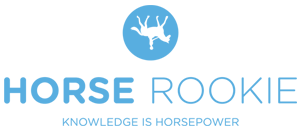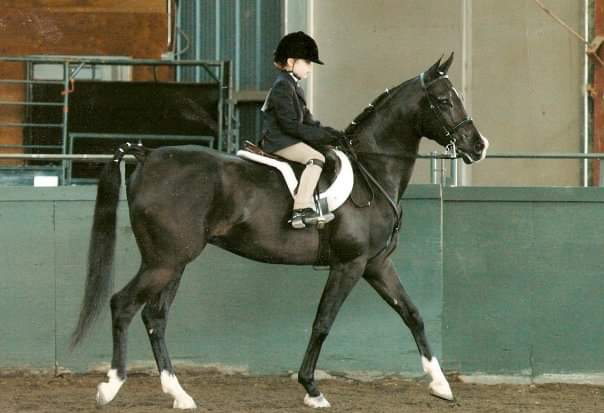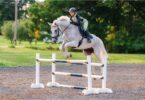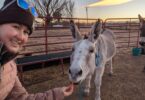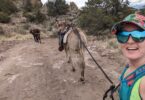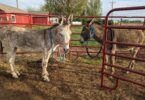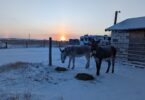I started riding at a very young age. Because of my youth, I didn’t have the awareness or ability to research, learn, or experiment with what I was taught back then as I do today as an adult.
That said, the learning curve in the horse world continues to be steep, and there is always more to learn. Even more knowledgable and experienced equestrians (e.g. your coach, professional riders, Olympic team members) are still constantly learning and adjusting the manner in which they approach horses and their own riding.
Because of the fact that we are working with large animals, all with unique quirks and personalities, it is important to remain humble and remind ourselves of how very much there is to learn and how far we have yet to go. So, to those who are just starting out in the horse world, remember this:
Don’t compare yourselves to others, never feel ashamed to ask questions, double check “facts,” and stay thirsty for knowledge.
The only way you can continue to learn and better yourself is by being open to new information and aware of the fact that it is always better to ask questions, to clarify, and to learn than to pretend you know more than you do.
My Riding Story
I began riding Arabian horses at the age of four and showing on the Arabian circuit at age five.
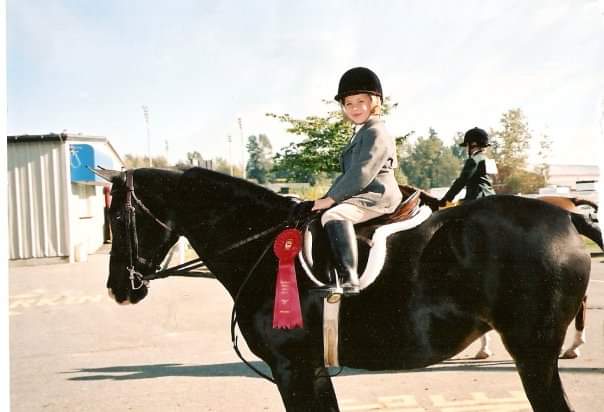
Showing with Sam
From there, I continued to grow as a rider, predominately showing in Hunter Pleasure. At age eight, I got my first horse, a very green and difficult Arabian gelding named Farley, who was only 6 years old.
He forced me to accelerate my learning curve (understatement) and taught me how to manage difficult horses from a very young age.
As I grew older, I lost interest in the Arabian circuit and moved onto the Open Hunter/Jumper circuit, which has held my heart ever since.
Chief Rookie Aside: I can’t even handle the cute factor in these photos. #babyhorsebabyshelby
Not too long after turning my focus to jumping, I started working with Thoroughbreds, most of whom had come off of the racetrack (i.e. ex-racehorses or OTTBs).
This planted the seed for another lifelong passion–my love for Thoroughbreds and training them for new careers once they finished racing.
As I learn more about OTTBs and how they’re trained on the track through my work as an exercise rider on the racetrack (something I started 3 years ago), my love for the breed grows and my training approach becomes increasingly fine-tuned.
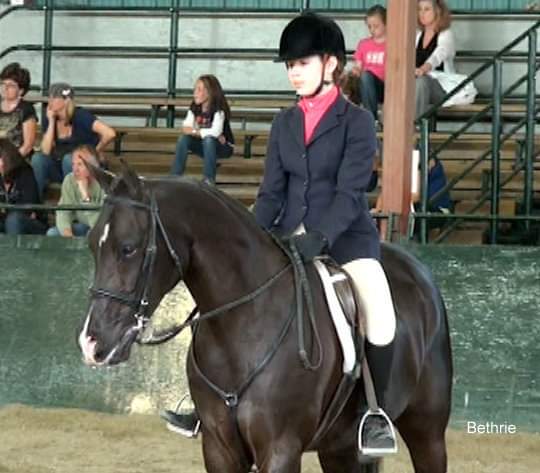
Farley Taught Me So Much
Lately, I started to focus more heavily on
I’ve become more aware of my own strengths and weaknesses–and those of other people in the horse world.
While I still have much to learn (and always will), working with so many different riders, trainers, horses, and disciplines has taught me so much… that I wish I’d known sooner!
Below, I share some of the most important lessons I’ve learned, biggest “rookie mistakes” I’ve made, and best advice for equestrians of all ages, skill levels, and disciplines.
Important Lessons Learned
I want to share some of the biggest gaps I had in my riding education, as well as important lessons other people in the horse world have taught me. (Or, I’ve learned the hard way.)
My hope is to educate you and help you avoid making some of the mistakes that I’ve made in the past. I also want to fast-track your equestrian education as a whole.
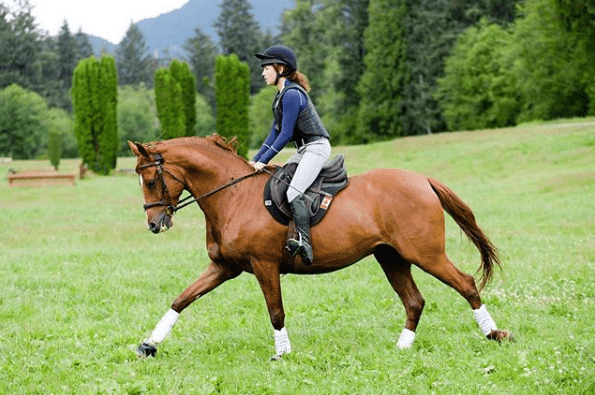
We can always learn more and be better.
Lesson #1
Vet your trainers. Vet your farriers. Vet your barn owners. Vet your leasers. Vet your vets. References matter!
No matter how kind or awesome someone may seem, if you do not know them well, you have every right to be cautious.
There are TONS of professionals that masquerade under the guise of being educated only to mislead their students, botch their services, or offer subpar horse care.
Some “experts” look great on paper or in advertisements, but are overselling themselves or downright taking advantage of people in reality.
Inexperienced horse people are the most common victims, and they are far easier to prey upon than experienced horse riders and professionals.
Especially when it comes to trainers, be wary of training methods that are unethical, bad practice, or just downright useless.
When you’re just starting out, you may struggle to spot bad actors or bad methods. (Been there…) By the time you do, you’ll have a lot of bad habits or have made a lot of mistakes that could have been avoided.
Ask for references. Read reviews. Get recommendations from people you respect and trust.
Trust your gut: When something or someone feels “off,” get a second (or third or fourth) opinion.
Chief Rookie Aside: Read Shelby’s Letter to My Rookie Self for more advice!
Lesson #2
Don’t compare yourself to others.
This one is HARD. It’s so easy to fall into the trap of comparing yourself to other riders.
Everyone–yes, even Olympians–has his or her own strengths and weaknesses.
People also learns at different rates and in different ways. Something you may pick up easily may take others far longer to learn (and vice versa). And that is absolutely okay!
Don’t get down on yourself because your riding journey doesn’t follow the same path as others–or the path you envisioned for yourself starting out. It never will. Everyone is different.
Instead, stay motivated, ask lots of questions, and find out everything you can do to work on yourself in the most effective manner possible rather than fixating on what you aren’t doing well enough (yet).
Lesson #3
Your trainer does NOT have the right to verbally abuse you.
Every trainer has his or her own training style, and some are more “abrasive” than others. Some students prefer harsh trainers, and others find them overwhelming or demotivational. That’s totally fine, and everyone is entitled to their preferences.
That said, remember that YOU are paying your trainer for a service. You are paying them to critique and help better you as a rider.
That does not mean they’re entitled to insult you, make you feel small, or ridicule you.
There’s a fine line between constructive training and bullying, and some trainers take it too far. Others are downright rude and unfair to their students. If you feel like a line is being crossed, talk to someone.
If a coach ever makes you feel like you need to quit riding, or they cause you to doubt yourself because of mean things they’re saying, find a new trainer.
Of course, you can’t expect to only hear good things from your trainer. He or she is there to critique and teach you. But if they make you want to stop going to the barn, cause you immense anxiety, or all-in-all make you feel awful about yourself, find someone who has a teaching style more suited to you.
From an educational perspective, there is a reason why people with actual degrees in education aren’t taught to get their points across by ridiculing students.
You don’t owe your trainer anything. You don’t have to remain with someone who doesn’t support or respect you.
Lesson #4
Falls are part of riding, and you should (usually) get back on.
If you are not injured, getting back on a horse after a fall–even if it is on a different, quieter horse or on a lunge line, in the round pen, being led around. or even just walking–is always a good idea.
The longer you wait between a fall and getting back on, the more your anxious brain can run wild with worst case scenarios and make the entire situation seem far more frightening than it is.
Chief Rookie Aside: I share the story of my “favorite fall” in 30 years in this blog post.
If you’re super sore, no worries. But, get back on as soon as you’re feeling physically better, even if you still feel nervous. (Remember, you do not have to get back on the same horse you fell off.)
After a fall, it can be terrifying to ride again. Many people think it’s a “waste” to only get on and sit there–or only get on and walk.
But, ANY ride after a fall is a win.
Any small step out of your comfort zone to overcome a scary fall is a victory. Falls are inevitable in horseback riding. It is not if it will happen, but when. Come to terms with this, but be kind to yourself mentally and physically after a fall. Even the tiniest step forward to rebuilding your confidence is worth it.
You can do this. You are resilient and brave.
Lesson #5
Helmets are not stupid, and you should wear one.
Head injuries are extremely common in the horse world. Falls are inevitable, and you need to protect your head.
Chief Rookie Aside: We include our favorite helmets in this blog post.
Making a habit out of not riding in a helmet is dangerous. Though adults legally have the choice whether or not to wear a helmet, remember that helmets serve an important safety purpose.
Never feel embarrassed or ashamed of taking precautions and protecting your brain. Anyone who tells you helmets aren’t “cool” or pretends they’re not at equal at risk of injury is lying.
True friends and mentors care about your safety–and their own.
Biggest Rookie Mistakes
Mistakes are an inevitable part of life in the horse world. We all have lapses in judgment and make human mistakes. Or, in some cases, we may make mistakes out of complete and utter ignorance.
With internet access to so much information, luckily, answers (or solid advice) are usually only a few clicks away. Research your questions. Listen to reputable sources.
Forgive yourself when you make mistakes. (This is the hardest one.)
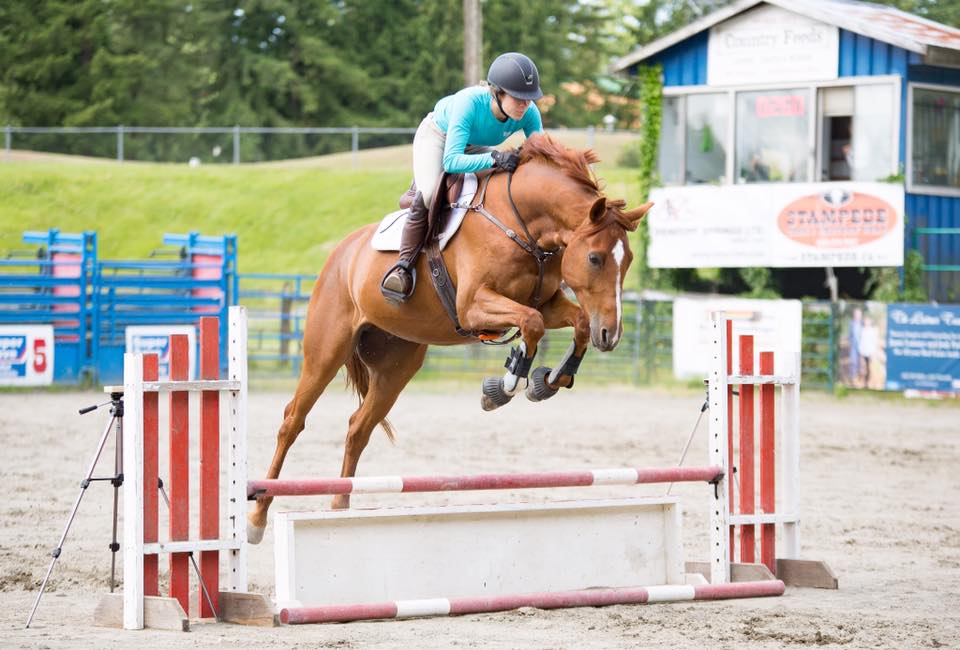
The most important thing is to learn from your mistakes and move onward…and upward!
The internet wasn’t part of my childhood, so I made more than my fair share of mistakes in my youth. While I try not to repeat them, I continue to make plenty of new mistakes now!
Mistake #1
Incorrectly wrapped legs
Polo wraps and other types of bandages serve a number of legitimate purposes. Many riders use polo wraps purely for fashion, which was the driving factor behind my desire to buy and start using them as a kid.
Unfortunately, no one ever taught me how to wrap correctly or informed me that there was even a right or wrong way to wrap.
I wrapped my Arabian gelding Farley’s legs incorrectly countless times and once even had a polo wrap come undone while lunging. All the while, I had no idea the damage poorly wrapped legs could cause.
For those unaware, incorrectly wraps can result in bowed tendons and other serious injuries. In addition, having wraps come undone while riding or lunging, like in my case, is dangerous for horse and rider.
Luckily, nothing bad happened to my horse. It was only years later when I familiarized myself more the the hunter/jumper circuit that I learned how to wrap properly.
This skill was honed as I entered the racing world, where wrapping technique is extremely important and used daily for all sorts of different types of wraps.
Learn from my mistake, and ensure you learn how to wrap properly by someone who knows what they’re doing.
Do not wrap legs if you’re not comfortable doing so. A cute Instragram photo isn’t worth the risk!
Mistake #2
Underestimating the importance of proper turnout
Growing up, I never learned how unnatural the manner in which many people keep their horses truly is. My Arab lived in a stall for much of the day with 6-8 hour turnout (sometimes less) in a small paddock for years.
I had no idea I was doing anything wrong! As a result, though, he was always hot, difficult to ride, and very spooky.
The difference after introducing him to proper turnout was astonishing.
The experience completely changed my perspective on how horses should be kept and why turnout and socialization is vital. I encourage all rookies to educate themselves on the basic needs of horses and how too much stalling can jeopardize their mental and physical wellbeing.
Horses injure themselves in stalls, too. So trying to “protect” your horse by keeping him inside all the time… could actually be hurting him more.
Mistake #3
Blindly following opinions
Especially when I was younger and more impressionable, I often blindly followed what I was told by the “horse experts” in my life. I never spoke up even when I started to feel uncomfortable with some of what I was seeing or being told.
I would make decisions related to training, feed, or tack on the basis of being told what to do–not based on my own research, true expert opinions, or personal knowledge.
I wish I had learned more about important aspects of horseback riding or horse ownership instead of relying on others to make decisions for me.
Mistake #4
Not taking more lessons
For several years, I took very few lessons. I really wish I’d chosen to find coaches or train regularly with a variety of different people. Getting outside opinions from credible sources is such a valuable way to improve your riding.
The mindset of only ever training with one trainer, never taking lessons in different disciplines, or avoiding other instructors’ clinics is archaic.
I’ve learned there is so much value in taking lessons as frequently as possible and seeking fresh eyes to help better your riding.
Mistake #5
Being too focused on other riders
For a while, in my youth, I allowed my entire self worth to be defined by what other riders were doing or what other horse people said to me.
I compared myself to others far too much and, in some cases, even overstated my own riding skills and accomplishments in a desperate attempt to fit in. I wanted to show some sort of pre-determined worthiness in order to impress people. It was toxic and, frankly, not at all conducive to personal growth.
Chief Rookie Aside: In yoga, we say “Stay on your own mat.” It reminds us not to worry about what anyone else it doing around us.
The fact of the matter is not all people are nice. Some riders may make you feel small (some intentionally and others by accident).
But, at the end of the day, we have to make the choice to focus on ourselves and our own personal improvement rather than what is going on in the lives of others.
No two riding journeys are the same!
Best Horse Riding Advice
You will quite literally never stop learning in the horse world. Ever. (That’s part of why we all love it!)
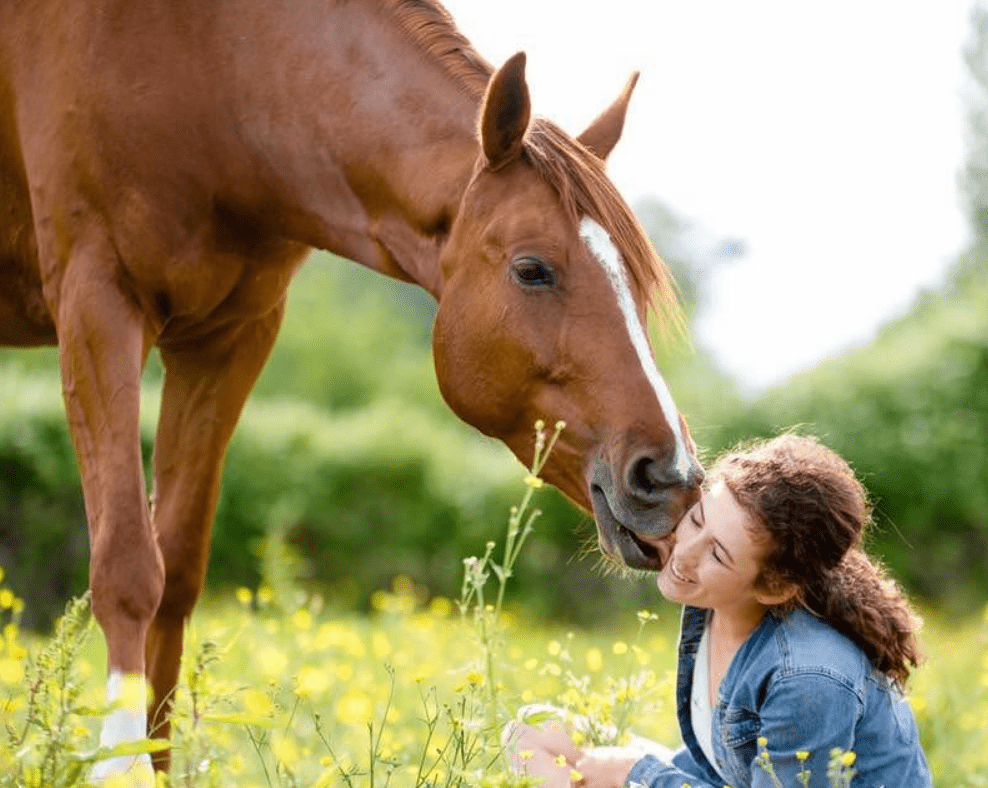
Remember why you started riding in the first place…
There’s always something new to learn or a different technique to try. Because of this, I want to share some “golden rules,” or bits of advice that are applicable to any level of rider, new or more experienced.
These are rules to live by and keep in the back of your mind for when you really need them.
Advice #1
Stay motivated, and watch other riders.
Instead of comparing yourself to better riders, seek motivation from them. Watch videos of other riders, listen in on other people’s lessons, watch your trainer ride and ask lots of questions. Watch how those more experienced than you ride and learn from them.
Chief Rookie Aside: Our Media Guide highlights wonderful equestrian vloggers and podcasts that will educate and motive you!
Look up articles written by experts in the sport, watch videos of professional riders, and learn the “real experts” ride and care for their horses. See what modern-day equine behavioral experts are saying and learn from it.
There is so much horse-related information that is readily at your disposal through the internet, not to mention in person events like horse shows, lessons, clinics etc.
Advice #2
Take the time to find a suitable barn and coach.
If you haven’t started riding yet, do some research about what type of riding you would like and what interests you most. There are so many different disciplines and so many different barns and coaches out there.
Shop around for coaches, and take test lessons with a few of them before committing to a single program. (Same advice for a barn.) Make sure you pick the right combination for your personal interests and learning style.
It’s much easier to get this right the first time than regret your decisions later.
Advice #3
Don’t ever oversell or undersell yourself as a rider. Be honest with yourself.
Often times, especially young riders feel the need to exaggerate their skills. This happens when talking to peers, coaches, or when looking for horses or jobs.
As a professional who sells horses now, I see it far too often–and it’s dangerous. I get newer riders or anxious riders looking at green, strong, or unpredictable horses and trying to oversell their abilities to make them out to be more than they are.
If safety isn’t enough to cause you pause, remember you’ll actually look worse in the long run if you’re “over-horsed.”
At any point in your riding journey, you will be more respected for being up front about your comfort and skill levels with horses. Overselling your abilities can land you in really bad situations.
On the other hand, downplaying your abilities and putting yourself down will also hold you back. It’s important to be mindful of your own strengths and weaknesses so you accurately assess your needs and abilities as a rider. This will help you throughout your riding career.
Advice #4
Don’t take it out on the horse.
You will become frustrated. We all do. You will have times where you may feel upset with your horse. You may even think the horse is out to get you, doing things on purpose out of blatant disrespect. It will be draining.
Working with another animal with a mind of their own, especially a flight animal, is challenging.
If you ever find yourself getting frustrated to the point where you’re having difficulty controlling your emotions, get off and take a breather. While horses are not immune to making mistakes themselves, they are not malicious and do not set out to intentionally upset humans.
Because of this, as their leaders and the smarter beings, we need to give them adequate guidance and understanding.
Chief Rookie Aside: If you struggle to keep your emotions in check, here are 32 things to try.
It is our job to be rational and exude as much calm and confidence as we can, not to take a dictatorial stance and get overly upset with them.
After all, riding horses is a privilege, not a right.
The least we owe to the horse is to make their job as enjoyable and easy to understand as we can.
Advice #5
Set your own goals. Do not mimic others.
There is no “right” path in the horse world. Some riders set out to be competitive riders with Olympic dreams, while others crave the simple joys of being around and working with horses.
Whether you want to compete in the future or ride solely for the enjoyment of it, that is YOUR decision.
Never let the opinions and decisions of others define what you choose to do. There can be a lot of pressure to show horses and to be the best. But, in reality, this is not why any equestrian joins the sport in the first place.
We join it for the horse.
Never put yourself in a position where you feel pressured to the point where you start to lose your love for the sport. Don’t feel obligated to show just because your friends or other riders in the world do.
It is entirely up to you what you do and don’t pursue, and you can still meaningful goals and become an absolutely incredible rider without ever setting foot in the show ring.
If you’d like to follow more of my journey, you can find me:
On YouTube
Online at Milestone Equestrian
On Instagram
On Twitter
P.S. Enjoy this article? Trot on over to:
- Letter to My Rookie Self: Shelby Dennis
- Horseback Riding: What to Wear (With Pictures)
- 9 Rookie Approved Horseback Riding Boots for Beginners
- Shelby Dennis on the 15 Best Equestrian Vloggers
- 32 Things You Can Do Today to Calm Your Riding Nerves Forever
- Submitting Your Own “Letter to My Rookie Self”
- Herm Sprenger Turnado Bit Review: I’ve Never Ridden Better
- Food or Foe: What Horses Eat (And Why)
- 3 Riders on Equestrian Bullying (And What You to Do About It)
